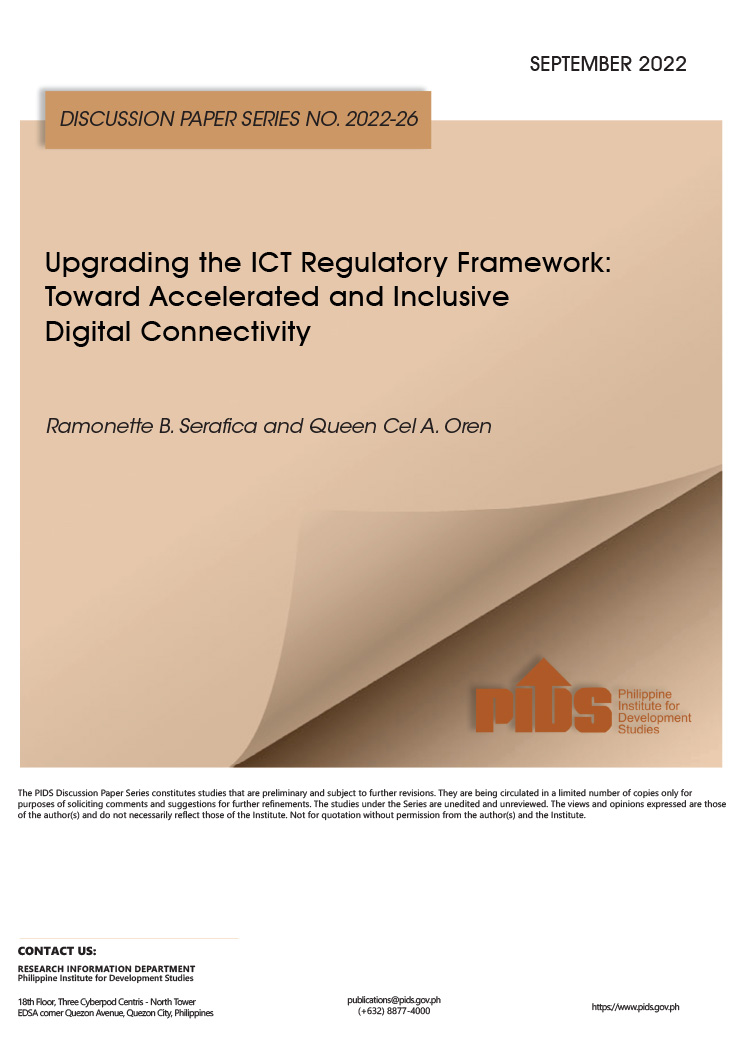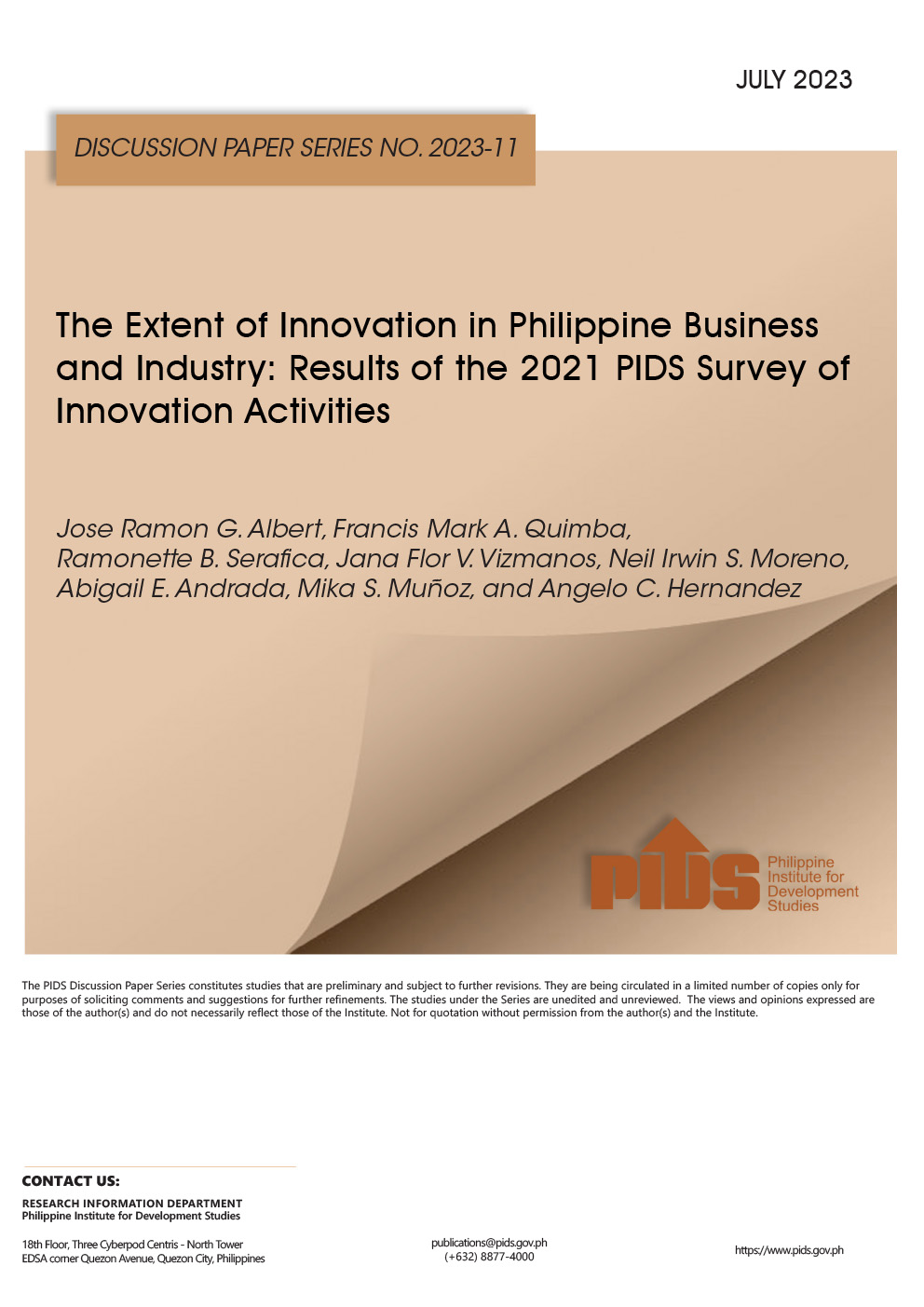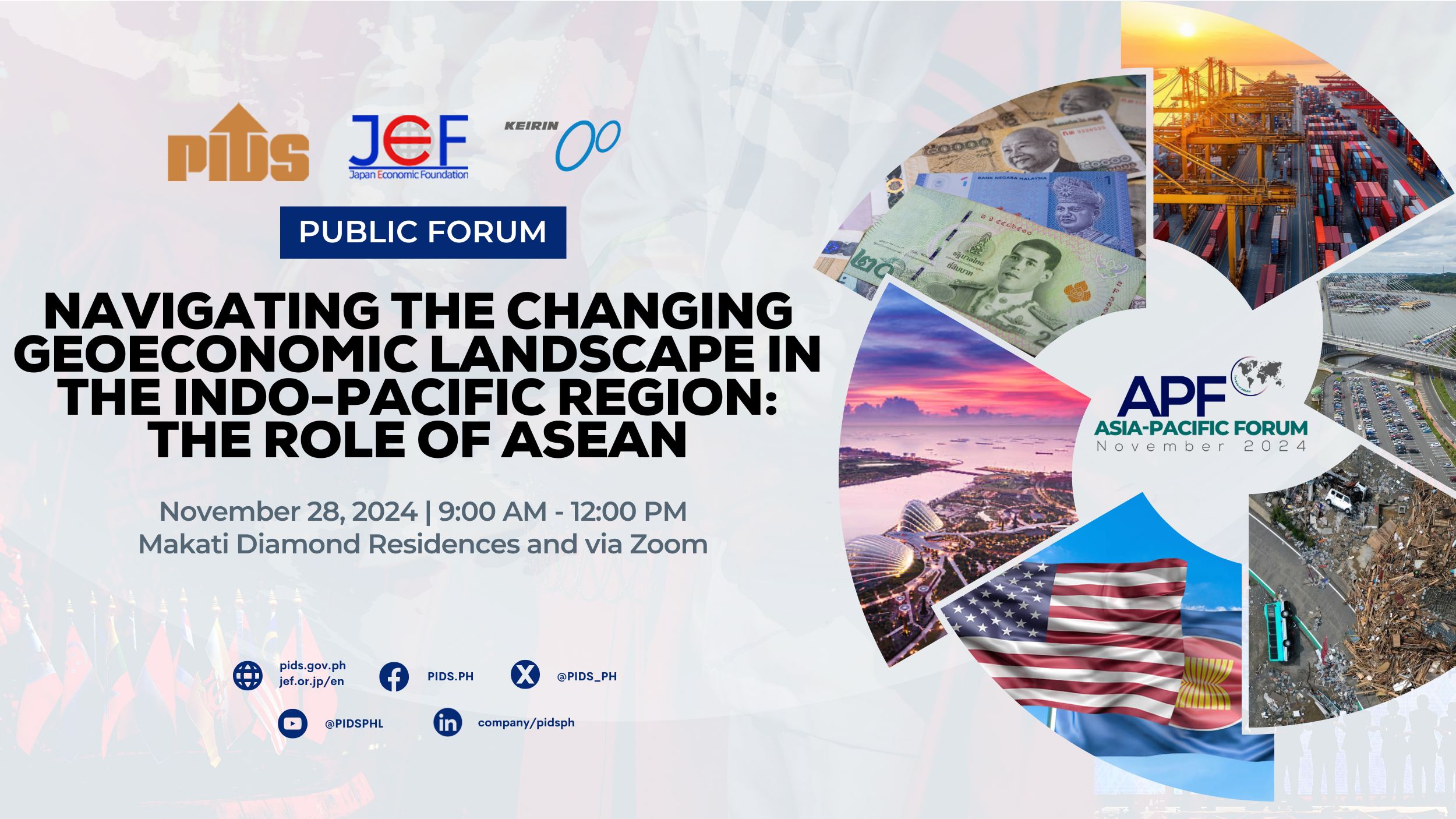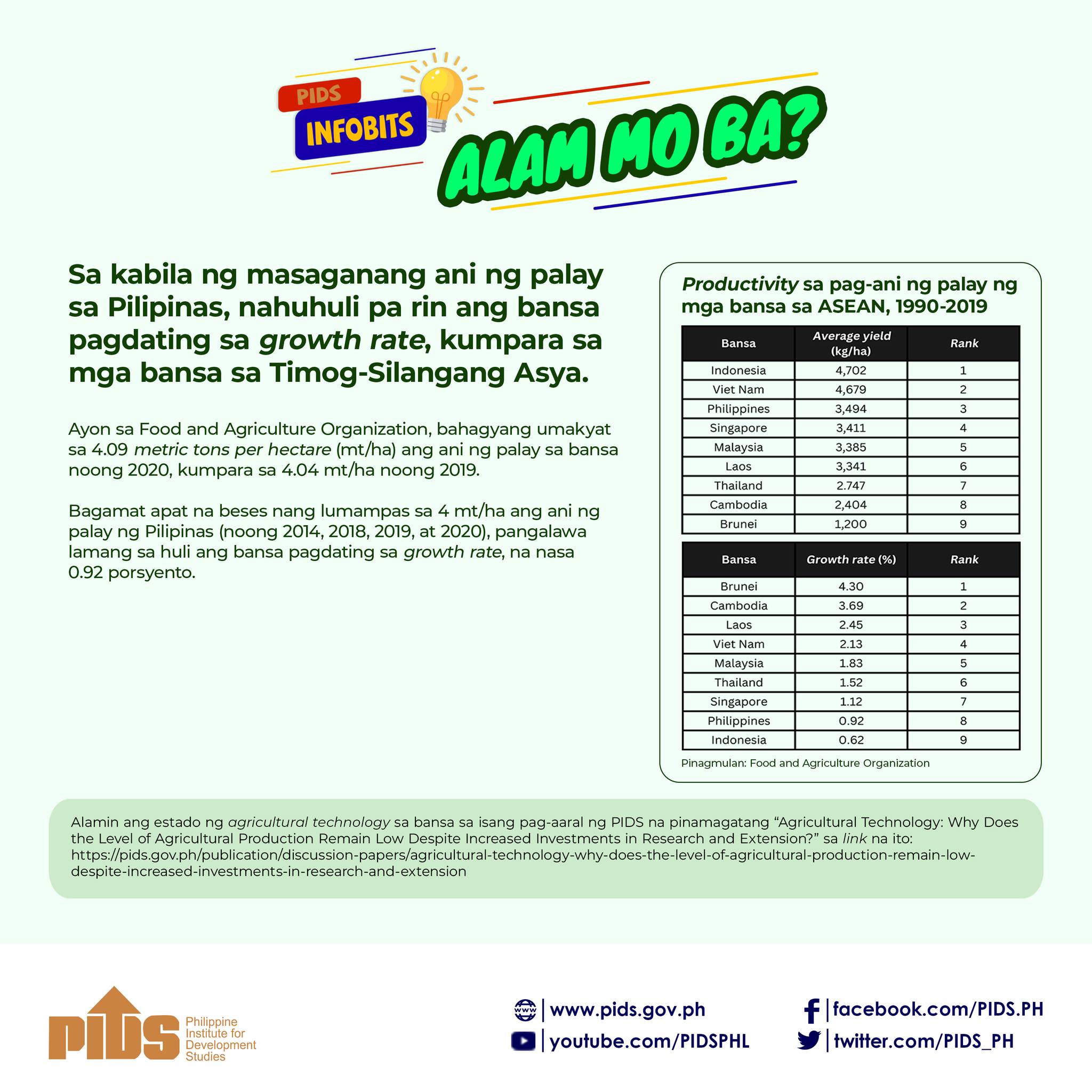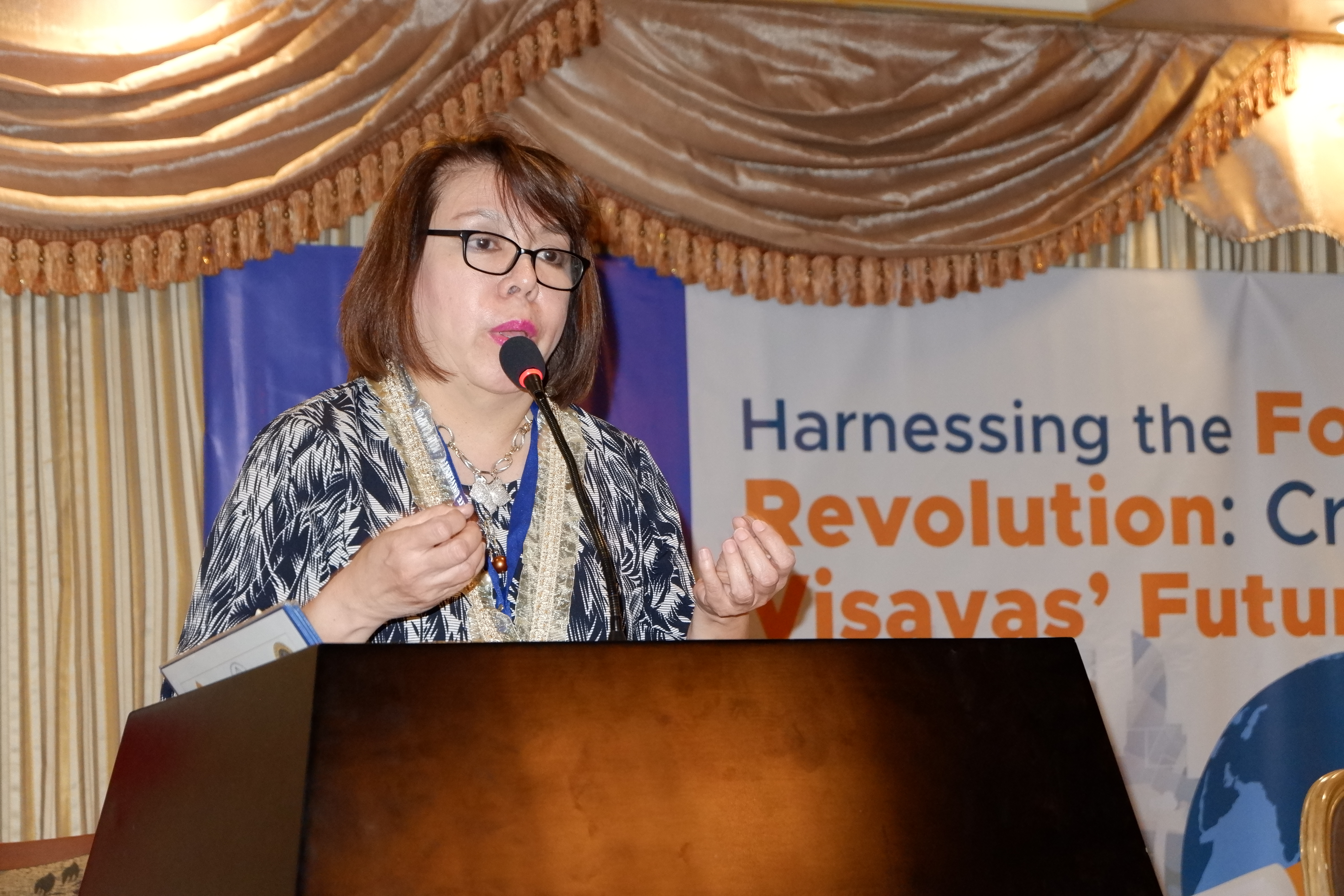
The Fourth Industrial Revolution (FIRe) is not just about science and technology.
This is according to Jose Ramon Albert, senior research fellow at the Philippine Institute for Development Studies (PIDS), who spoke during the public seminar on “Harnessing the Fourth Industrial Revolution: Creating Central Visayas’ Future Today” held in Bohol recently.
“We can’t just compartmentalize and say technology is just about science. It’s not. It’s going to impact every aspect of society including culture,” Albert explained.
As for Nannette Arbon, assistant director at the Department of Trade and Industry (DTI) Region 6, who also served as a speaker during the seminar, creative skills can also be of use to other science-related areas like electronics and engineering.
Arbon emphasized that this concept is all under the so-called ‘creative economy’. According to the United Nations Institute for Training and Research, creative economy “deals with the interface between economy, culture, technology, and social aspects”. This way, products and services produced will have “creative content, cultural value, and market objectives”.
“When you say it's under creative economy, it's something to do with the mind... So, pwede siyang engineering, Internet of Things, electronics. Pwedeng [katulad ito ng] arts, carving, mga sculpture, etc.,” Arbon explained.
She warned that the FIRe will have an impact on the creative industries, saying that designers and manufacturers should also enhance their creative talents and skills to keep up with the fast-changing environment brought about by technological developments.
“For example, all these furniture manufacturers, it's so easy for them to procure or buy equipment, but the challenge is the talent. Where do we get people who know digital fabrication?” Arbon said.
Efforts to encourage students and locals to enhance their creativity skills are not entirely new in the Philippines.
Through the DTI and partner agencies, fabrication laboratories, also known as “FabLab”, have been set up in various state universities and colleges in the country. Arbon said that at present, there are over 10 FabLabs nationwide. The first one was established in Bohol in 2014.
The DTI, on its website, described FabLab as a “small-scale workshop offering digital fabrication”. With computer-controlled tools present in each FabLab, the aim is to make “almost anything”, including “technology-enabled products generally perceived as limited to mass production”. FabLabs are used to create prototypes and scale models of products before they are mass-produced.
While such efforts are led by the government, Albert emphasized that other stakeholders should also contribute to ensure that the country can harness the benefits, as well as face the challenges, presented by FIRe.
“We need to have a whole-of-government approach, but at the same time, it's not just [the] government’s role. It's the entire society’s role. That is why we really need a whole-of-nation approach,” Albert said.
This regional event is part of a series of awareness-raising activities, policy dialogues, and seminars initiated by PIDS to promote deep and broad-based understanding of the socioeconomic implications of the FIRe. It was jointly organized by the PIDS, National Economic and Development Authority Region 7, and Bohol Island State University. ###
This is according to Jose Ramon Albert, senior research fellow at the Philippine Institute for Development Studies (PIDS), who spoke during the public seminar on “Harnessing the Fourth Industrial Revolution: Creating Central Visayas’ Future Today” held in Bohol recently.
“We can’t just compartmentalize and say technology is just about science. It’s not. It’s going to impact every aspect of society including culture,” Albert explained.
As for Nannette Arbon, assistant director at the Department of Trade and Industry (DTI) Region 6, who also served as a speaker during the seminar, creative skills can also be of use to other science-related areas like electronics and engineering.
Arbon emphasized that this concept is all under the so-called ‘creative economy’. According to the United Nations Institute for Training and Research, creative economy “deals with the interface between economy, culture, technology, and social aspects”. This way, products and services produced will have “creative content, cultural value, and market objectives”.
“When you say it's under creative economy, it's something to do with the mind... So, pwede siyang engineering, Internet of Things, electronics. Pwedeng [katulad ito ng] arts, carving, mga sculpture, etc.,” Arbon explained.
She warned that the FIRe will have an impact on the creative industries, saying that designers and manufacturers should also enhance their creative talents and skills to keep up with the fast-changing environment brought about by technological developments.
“For example, all these furniture manufacturers, it's so easy for them to procure or buy equipment, but the challenge is the talent. Where do we get people who know digital fabrication?” Arbon said.
Efforts to encourage students and locals to enhance their creativity skills are not entirely new in the Philippines.
Through the DTI and partner agencies, fabrication laboratories, also known as “FabLab”, have been set up in various state universities and colleges in the country. Arbon said that at present, there are over 10 FabLabs nationwide. The first one was established in Bohol in 2014.
The DTI, on its website, described FabLab as a “small-scale workshop offering digital fabrication”. With computer-controlled tools present in each FabLab, the aim is to make “almost anything”, including “technology-enabled products generally perceived as limited to mass production”. FabLabs are used to create prototypes and scale models of products before they are mass-produced.
While such efforts are led by the government, Albert emphasized that other stakeholders should also contribute to ensure that the country can harness the benefits, as well as face the challenges, presented by FIRe.
“We need to have a whole-of-government approach, but at the same time, it's not just [the] government’s role. It's the entire society’s role. That is why we really need a whole-of-nation approach,” Albert said.
This regional event is part of a series of awareness-raising activities, policy dialogues, and seminars initiated by PIDS to promote deep and broad-based understanding of the socioeconomic implications of the FIRe. It was jointly organized by the PIDS, National Economic and Development Authority Region 7, and Bohol Island State University. ###

